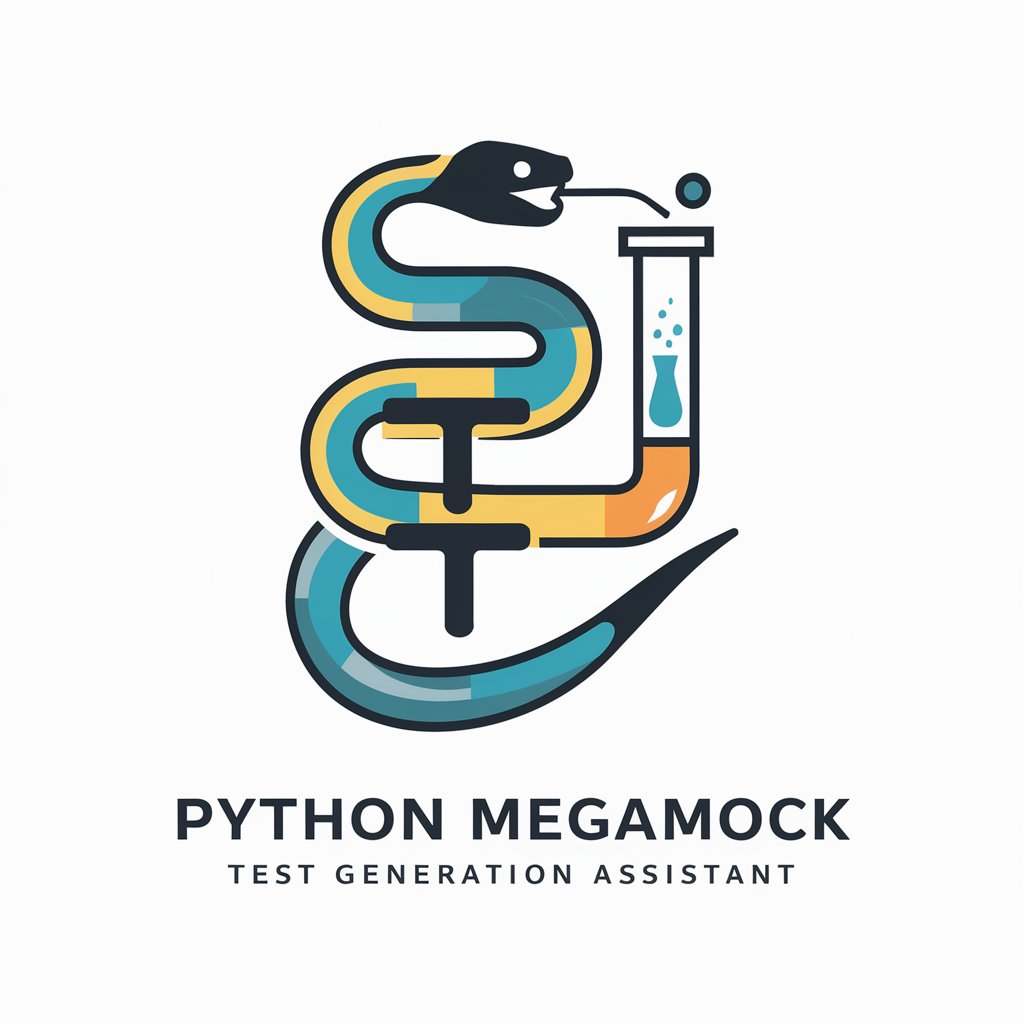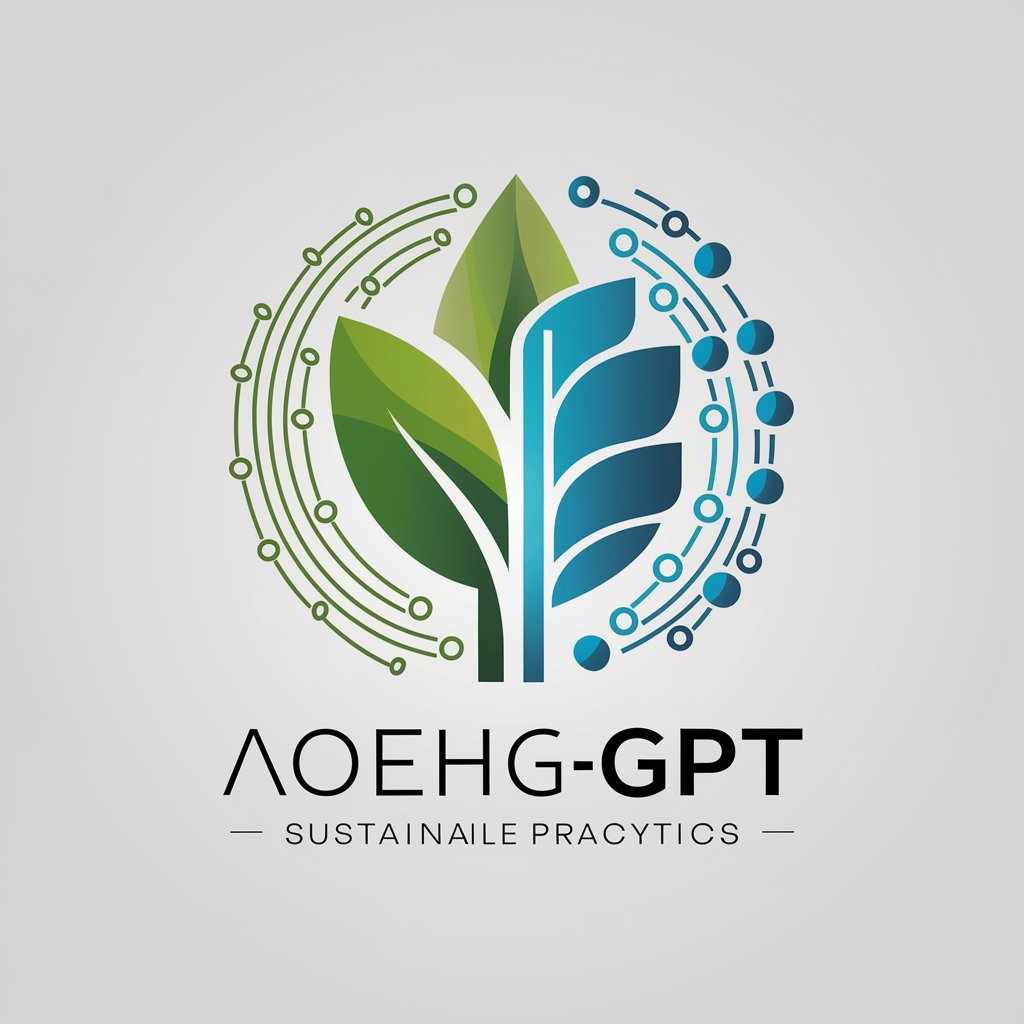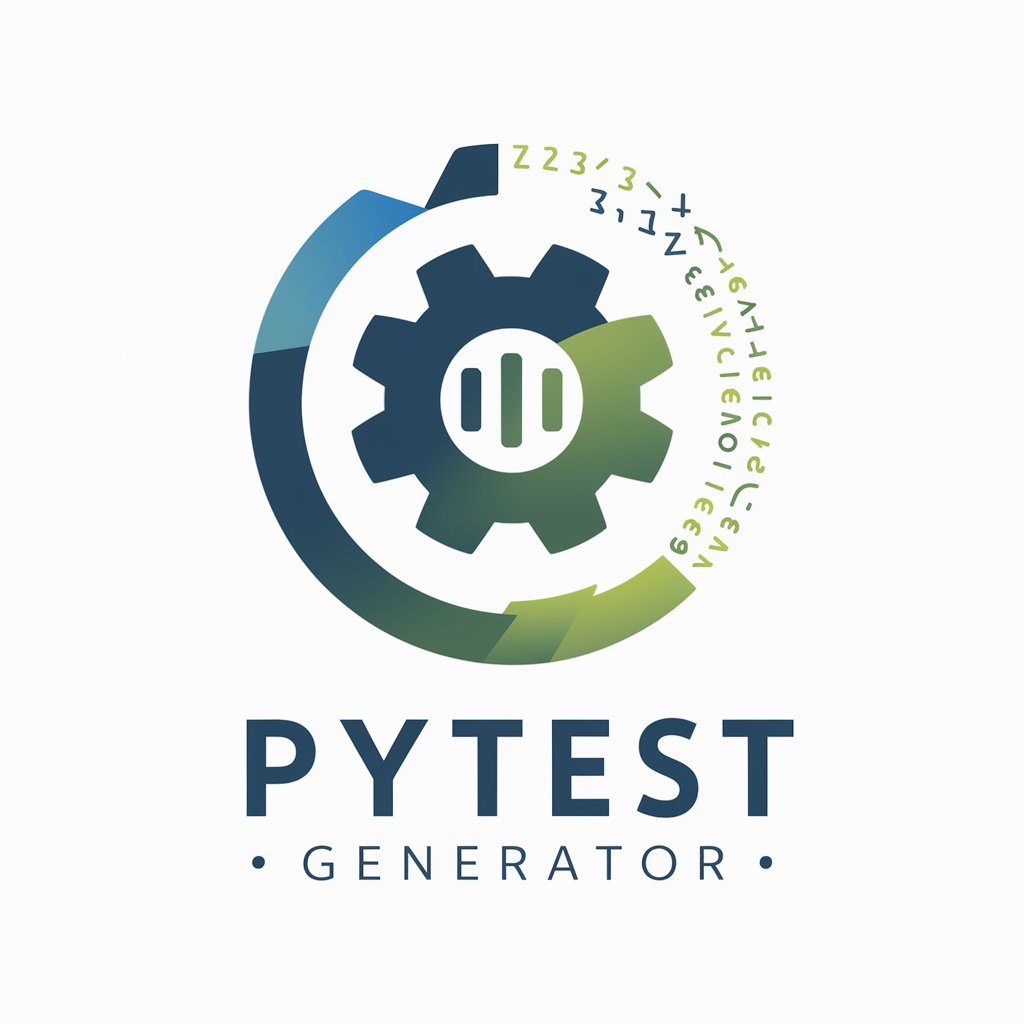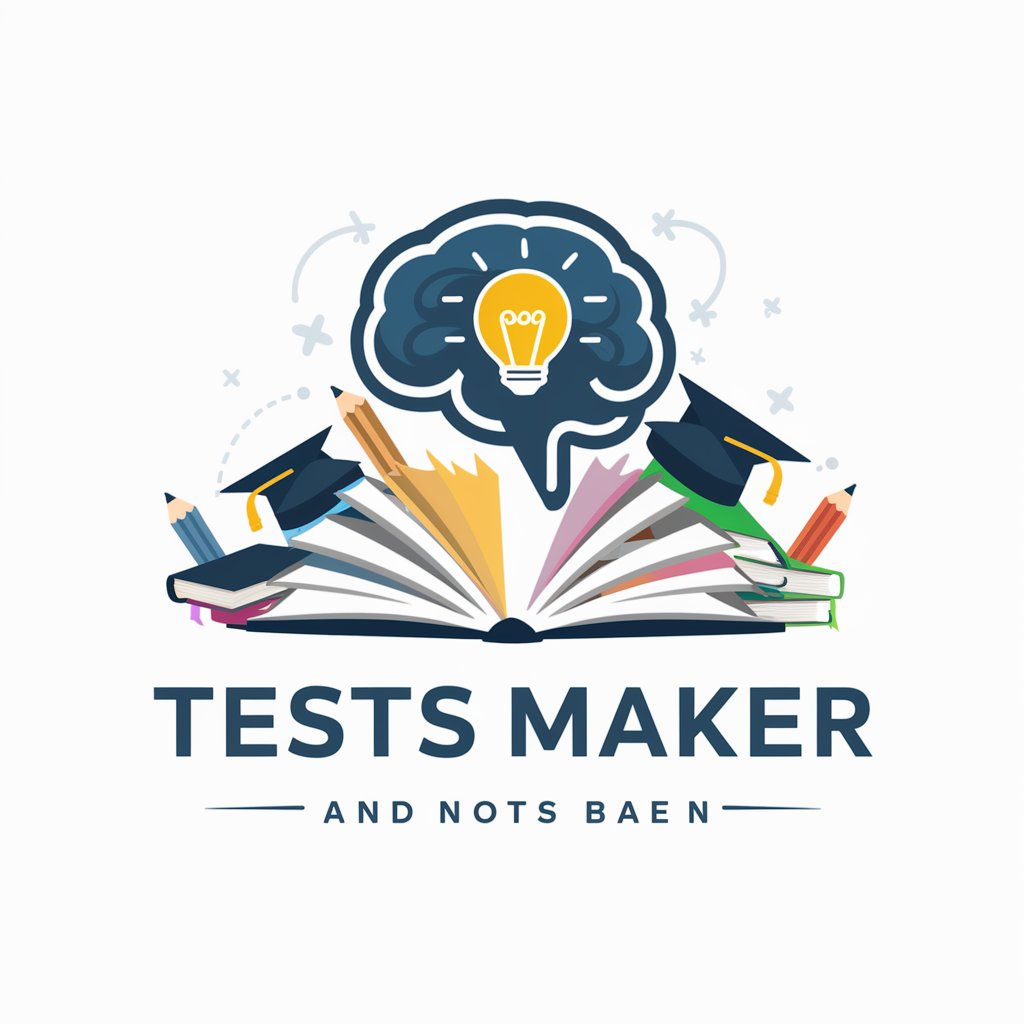
Python MegaMock Test Generation Assistant - Mock-Based Test Generation

Hello! Ready to generate some Python tests?
Automate your Python tests with AI
Generate a Python test using MegaMock to mock a class method.
Create an example of using MegaPatch to replace a module attribute.
Explain how to mock an asynchronous function with MegaMock.
Show how to use MegaMock for dependency injection in a unit test.
Get Embed Code
Introduction to Python MegaMock Test Generation Assistant
The Python MegaMock Test Generation Assistant is designed to streamline and enhance the process of creating test cases for Python applications, particularly those that require extensive use of mocks and patches to simulate dependencies, external services, or complex internal components. Its core purpose is to assist developers in generating more robust, reliable, and comprehensive test suites with minimal manual effort. By offering a suite of functionalities tailored for the Python testing ecosystem, this assistant aids in identifying code paths, analyzing edge cases, and generating test skeletons and complete test implementations using the MegaMock library. An example scenario where this assistant proves invaluable is in a development environment where a team is transitioning from using Python's built-in unittest.mock to MegaMock for its enhanced features, such as handling async code more gracefully and providing a more intuitive interface for setting up mocks and patches. Powered by ChatGPT-4o。

Main Functions of Python MegaMock Test Generation Assistant
Generate Test from Code
Example
Given a Python function that interacts with an external API, the assistant can generate test cases that mock the API calls, ensuring tests run without actual calls to external services. This includes identifying where to use `MegaMock.it(...)` for replacing the API call with a mock.
Scenario
A developer is tasked with writing tests for a function that retrieves data from a third-party weather service. The assistant helps create mock responses from the weather service, allowing the developer to test various response scenarios, such as successful data retrieval and handling of API errors, without hitting the actual service.
Sanity Check
Example
When developers are unsure if their testing strategy covers all bases or correctly utilizes MegaMock, the assistant provides a 'sanity phrase' to confirm the approach aligns with best practices.
Scenario
Before finalizing a test suite, a developer uses the sanity check feature to validate their use of MegaMock against common pitfalls and ensure their tests are set up for maximum efficacy.
Ideal Users of Python MegaMock Test Generation Assistant
Python Developers
Python developers, especially those involved in backend services, web applications, and automation scripts, will find this assistant invaluable. It's particularly beneficial for those looking to improve their test coverage and efficiency in scenarios involving complex dependencies or external services.
Quality Assurance Engineers
QA engineers focused on software testing and automation can leverage this assistant to generate test cases more quickly and accurately, ensuring a higher quality and reliability of the software being tested. It's especially useful for engineers working in continuous integration/continuous deployment (CI/CD) environments where rapid iteration and testing are critical.
Software Teams Transitioning to MegaMock
Teams that are moving from Python's built-in unittest.mock to MegaMock for its advanced features will find this assistant a critical resource for learning best practices, generating test cases that leverage MegaMock's capabilities, and ensuring a smooth transition.

How to Use Python MegaMock Test Generation Assistant
Start Free Trial
Begin by visiting yeschat.ai for an immediate start with a free trial, requiring no login or subscription to ChatGPT Plus.
Understand the Basics
Familiarize yourself with the basic concepts of Python testing and mocking. Knowing when and why to use mocks will enhance your use of the MegaMock Test Generation Assistant.
Prepare Your Code
Ensure your Python code is ready for testing. This includes having a clear structure and understanding of the functions or classes you wish to test.
Engage with the Assistant
Interact with the Python MegaMock Test Generation Assistant by providing it with specific tasks, such as generating test cases, creating examples, or conducting sanity checks.
Apply and Iterate
Apply the generated tests to your codebase. Use feedback from test execution to refine your tests with the assistant's help, ensuring comprehensive coverage and robustness.
Try other advanced and practical GPTs
Mom tells stories before bed
Bringing Bedtime Stories to Life with AI

Reels GPT by Kossolapov
Transform Your Videos with AI Magic

PastMaster
Shape History with Your Knowledge

Körkortsteori för B-körkort
Drive into Knowledge with AI-Powered Learning

image Prompt Word Expert
Transform Words into Visual Masterpieces with AI

塔羅大師
Insightful Guidance with AI-powered Tarot

professionals personal equipment flat graph
Visualizing Professional Worlds with AI

精准农业-GPT
Revolutionizing Agriculture with AI Insight

Swahili Dictionary and Translator Kamusi
Translate and learn Swahili effortlessly.

Jonathan McPhillips Fine Art GPT
Explore the art world with AI-driven insights

프로그래밍 문제 해결, 컴퓨터공학 교수
AI-Powered Coding Assistance

Five Finger Death Punch Expert
Your AI-powered Five Finger Death Punch guide.

Frequently Asked Questions about Python MegaMock Test Generation Assistant
What is Python MegaMock Test Generation Assistant?
It's an AI-powered tool designed to assist developers in creating, managing, and optimizing Python test cases. It leverages the MegaMock library to generate mocks and test scenarios, streamlining the testing process.
How does it differ from traditional testing tools?
Unlike traditional testing tools, the Python MegaMock Test Generation Assistant focuses on generating mock-based test scenarios, offering a more intuitive and efficient way to handle complex dependencies and edge cases in testing.
Can it generate tests for any Python code?
Yes, it can generate tests for a wide range of Python code structures, including functions, classes, and modules. However, the effectiveness of the generated tests depends on the clarity and modularity of the input code.
Does it support test generation for asynchronous code?
Yes, it supports asynchronous code and can generate tests considering async functions and awaitable objects, making it suitable for modern Python applications.
How can I optimize my experience with this tool?
For an optimal experience, provide clear and concise code snippets for testing, specify your testing requirements accurately, and use the feedback loop to refine tests based on execution results.





